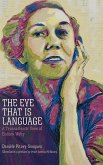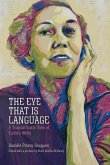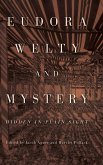Eudora Welty and Surrealism surveys Welty's fiction during the most productive period of her long writing life. The study shows how the 1930s witnessed surrealism's arrival in the United States largely through the products of its visual artists. Welty, a frequent traveler to New York City where the surrealists exhibited and a keen reader of magazines and newspapers that disseminated their work, absorbed and unconsciously appropriated surrealism's perspective in her writing. In fact, Welty's first solo exhibition of her photographs in 1936 took place next door to New York's premier venue for surrealist art. In a series of readings that collectively examine A Curtain of Green and Other Stories, The Wide Net and Other Stories, Delta Wedding, The Golden Apples, and The Bride of the Innisfallen and Other Stories, the book reveals how surrealism profoundly shaped Welty's striking figurative literature. Yet the influence of the surrealist movement extends beyond questions of style. The study's interpretations also foreground how her writing refracted surrealism as a historical phenomena. Scattered throughout her stories are allusions to personalities allied with the movement in the United States, including figures such as Salvador Dalí, Elsa Schiaparelli, Caresse Crosby, Wallace Simpson, Cecil Beaton, Helena Rubinstein, Elizabeth Arden, Joseph Cornell, and Charles Henri Ford. Individuals such as these and others whom surrealism seduced often lead unorthodox and controversial lives that made them natural targets for moral opprobrium. Eschewing such parochialism, Welty borrowed the idiom of surrealism to develop modernized depictions of the South, a literary strategy that revealed not only cultural farsightedness but great artistic daring.
Hinweis: Dieser Artikel kann nur an eine deutsche Lieferadresse ausgeliefert werden.
Hinweis: Dieser Artikel kann nur an eine deutsche Lieferadresse ausgeliefert werden.








